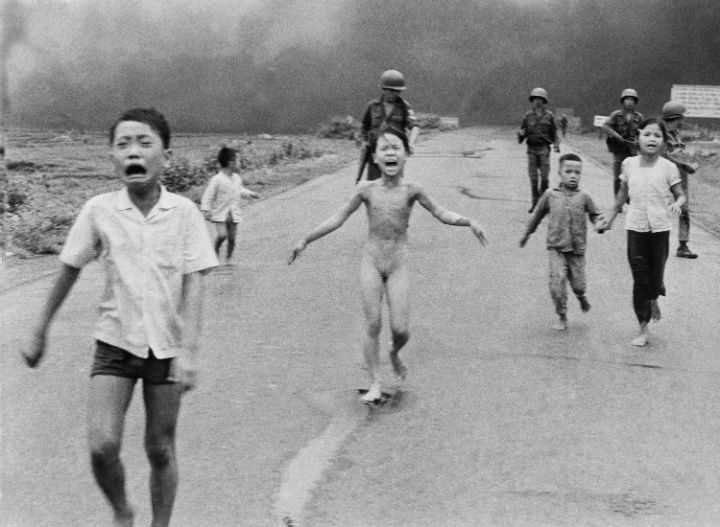OSLO (Reuters) – Norway’s prime minister joined a campaign by a Norwegian newspaper on Friday accusing Facebook Inc of undue censorship by barring a Vietnam War era news photograph showing a naked girl fleeing a napalm attack.

The social media giant erased the iconic photograph, showing children running from a bombed village, from the Facebook pages of several Norwegian authors and media outlets, including top-selling newspaper Aftenposten.
READ MORE: ‘Napalm girl’ photographer returns to Vietnam, this time using AP’s Instagram
Captured in 1972 by Pulitzer Prize-winner Nick Ut of the Associated Press, the image of screaming children running from a napalm attack shows a naked nine-year-old girl at its center.
Aftenposten splashed the photograph across the front page of its newspaper on Friday, next to a large Facebook logo, and wrote a front-page editorial headlined “Dear Mark Zuckerberg”, arguing that the network was undermining democracy.
Conservative Prime Minister Erna Solberg then posted the photograph on her own Facebook profile, writing that it had contributed to change the course of world history. The image later disappeared from the page.
READ MORE: ‘Napalm girl’ undergoing laser treatments to ease pain, decades later
“Facebook gets it wrong when they censor such pictures. It limits the freedom of speech,” Solberg wrote. “I say yes to healthy, open and free debate – online and wherever else we go. But I say no to this form of censorship.”
Solberg in her posting also praised Facebook for combating pictures of child abuse. Aftenposten, in its editorial, said Facebook should be able to tell the difference between child pornography and famous war photography.
Facebook said in a statement its rules were more blunt than the company itself would prefer, adding that restrictions on nudity were necessary on a global platform.
“While we recognize that this photo is iconic, it’s difficult to create a distinction between allowing a photograph of a nude child in one instance and not others,” a company spokesperson wrote.
READ MORE: Facebook denies censoring conservative content
“We try to find the right balance between enabling people to express themselves while maintaining a safe and respectful experience for our global community. Our solutions won’t always be perfect, but we will continue to try to improve our policies and the ways in which we apply them.”
In May, Solberg was present when Facebook opened its first Norwegian office.



Comments